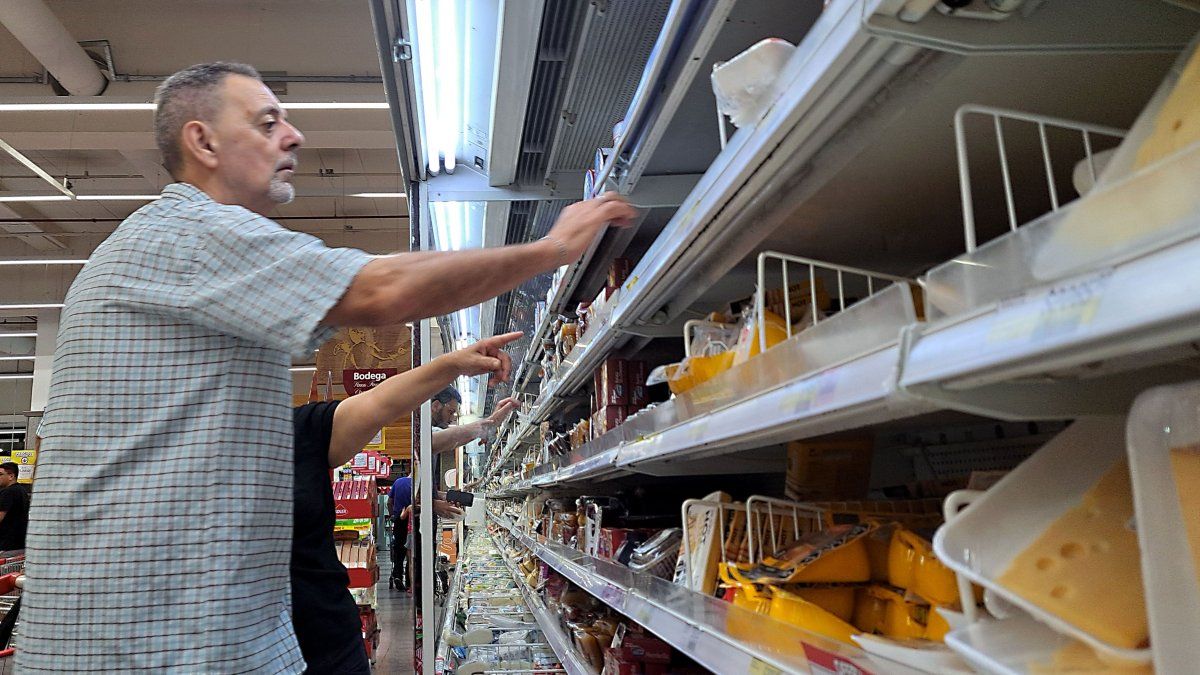According to the measurement they made from the Institute of Statistics of Workers (IET) of the Metropolitan University for Education and Labor (UMET) and from the center part of the Concertación and the Development (CCD), March inflation was from 3.1%. According to the report, the data reveals an acceleration of 0.7% with respect to the result of February.
Inflation accelerated in March
In detail, inflation of 3.1% is the highest since September 2023. Meanwhile, measurement Interannual was 56.9%, the lowest record since March 2022.
As detailed by the report, the acceleration in March with respect to the February data (2.4%) is explained by the increase in certain sectors such as education, which climbed 14.3%, This moment of the year is marked by a high seasonality product of the start of the classes, which brings the update of the fees of private schools.
Inflation March 2025 (1) .pdf
The IET inflation index.
Iet
On the other hand, once again the survey detected a Raise in the field of food and non -alcoholic beverages which registered an increase in 5.4% in their prices And it was consecrated as the higher in a year. This explains why, in March, inflation was higher in lower income homes. In detail, the peak occurred in the Deciles 1 and 2 – 20% with lower income – with 3.24% and 3.32% respectively.
In this sense, the general coordinator of the IET, Fabián Amico said that “despite the fact that the 3.1% registration in March seems to be led by the education sector, which climbed a significant 14.3% in March, really the item that promoted the acceleration of LA average inflation was food (+5.4%) given its high weighting in the general index. Meat and vegetables explain this increase, but do not stop there. The proximity of ASpeed with the IMF strongly increased devaluation expectations and left the CRAWLING PEG provided by the government to 1% monthly. This situation contains the latent threat of an additional inflation acceleration, since, as happened at other times of intense exchange pressure and financial disruption, many companies could begin to preventively adjust prices in the face of imminence of a change in the rhythm of devaluation. ”
According to the executive director of the CCD and Former Minister of Education, Nicolás Trotta“The acceleration of inflation registered in March worries that the strong rise in the price of food is still produced with the reduction of the 1% monthly crawling) defined by the government and in a context where most wages adjust behind inflation. All this implies an increase in poverty and occurs before the agreement with the IMF enters into force That, like all analysts coincide, it involves devaluation forward. ”
On the other hand, Trotta said that this inflation “takes place in a context where most peers have been adjusting salaries behind inflation.” In addition, he analyzed that “it has direct implications in the increase in poverty, whose basket has a high food dominance. Finally, it occurs before the agreement with the IMF enters into force that, like all analysts coincide, will involve changes in the rhythm of devaluation forward.”
Finally, the report also relieved the impact by sector level. In detail, the workers of the domestic service – which are those of lower salaries – were the ones who suffered the most inflation, with 3.29% And they followed him; Transport workers (3.25%); Commerce (3.23%) and construction (3.20%).
March inflation is known: with food impulse, an acceleration for the second consecutive month is expected
Indec will make known this Friday The official March inflation index. In the previous one, the consensus between private consultants and public bodies already points to a clear scenario: prices accelerated their progress rhythm after 2.4% recorded in February.
Private estimates agree that the consumer price index (CPI) showed in March a More intense dynamics, driven by seasonal factors, food price movements and some political uncertainty. One of the first to give signs of this acceleration was the Buenos Aires IPC, published by the statistical agency of the Autonomous City of Buenos Aires, which showed a rise of 3.2% monthly. The food and drinks item —COn an increase of 4.7% – was the main responsible, contributing 0.83 points to the index.
Source: Ambito




